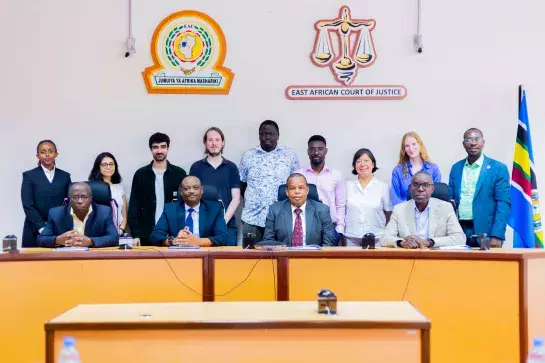
Courts play a significant role in addressing transnational ecological disputes that emerge from cross-border adverse impacts and affect multiple communities. Frequently, international, or national law mechanisms fall short in addressing these impacts, making the regional level crucial for resolving transboundary and transnational ecological disputes.
The ERC Curiae Virides Research Project hosted by the Brussels School of Governance (Vrije Universiteit Brussel (VUB)), and funded by the European Research Council (ERC) of the European Union, in collaboration with the Public Law Department of the Law & Criminology Faculty of the VUB, the International Peace Information Service (IPIS), Avocats sans Frontières (ASF), the Raoul Wallenberg Institute of Human Rights and Humanitarian Law (RWI), the Global Network of Human Rights and the Environment (GNHRE) and the Network of African National Human Rights Institutions (NANHRI) organised a hybrid workshop in Arusha, Tanzania.
The workshop focused on the role of judicial and non-judicial mechanisms in resolving transnational ecological conflicts. Participants could visit two prominent African supranational courts: The African Court on Human and Peoples' Rights (AfCHPR) and the East African Court of Justice (EACJ). These visits were enlightening and underscored the critical role of regional and sub-regional courts in promoting human rights, protecting the environment, and advancing regional integration in Africa. Workshop participants engaged directly with justices and registrars of both courts, gaining a better understanding of the working methods and mandates of these judiciaries. This blog post highlights key aspects of these visits and summarises the issues discussed. Read more...
